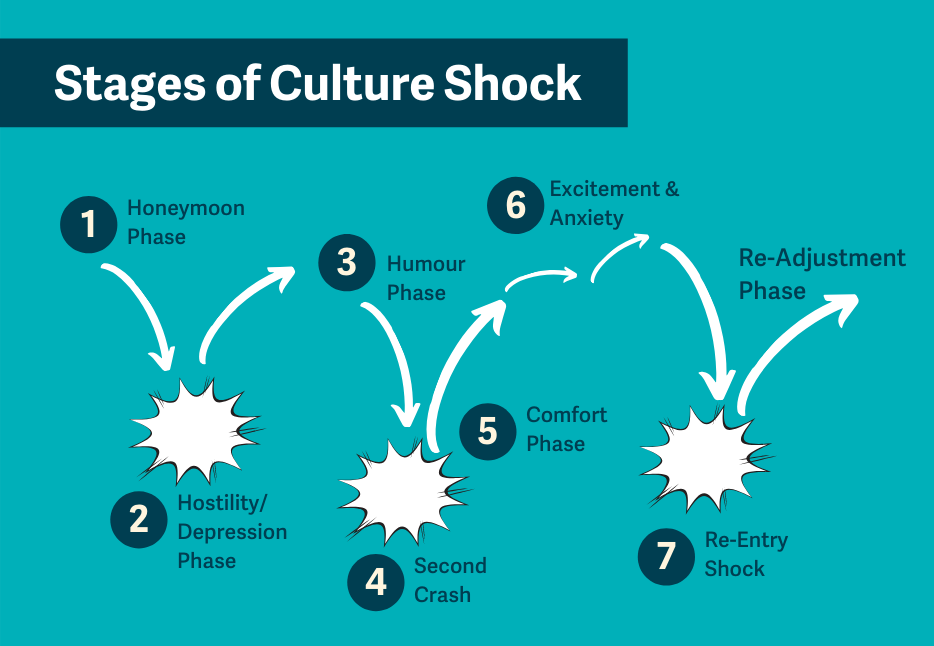Culture Shock
What is culture shock?
To live in another culture can be confusing and strange. It usually starts with something called the “Honeymoon phase” where you are excited and coming to Canada feels like an adventure. After a while you may start to feel frustrated or depressed; this experience is called culture shock. Culture shock is common for anyone who has just left his/her home country and enters an unfamiliar cultural environment. This is normal and will pass.
The best way to deal with culture shock is to be aware of it. You may experience:
- Disorientation and anxiety
- Discomfort, irritation, and frustration
- Homesickness
- Depression
- Weight gain or loss
- Difficulty sleeping
- Lack of energy
- Difficulty focusing on your studies
One of the responsibilities of your ISA is to help you prepare for the different stages of culture shock. The orientation, the follow-up meeting, and ongoing support are all designed to help you reduce the difficulties of adjustment.
Culture shock cycle

- Honeymoon Phase: Fascination with new environment; everything is exciting and new.
- Hostility/Depression Phase: Dissatisfaction and frustration. you may think, "I hate this place. I want to go home."
- Humour Phase: Regaining balance and humour. You may say, "I did the silliest thing yesterday."
- Second Crash: It is possible that you will experience another down cycle.
- Comfort Phase: Feeling comfortable and normal. you think, 'This place feels like home."
- Excitement and Anxiety: Before returning home you will be excited and nervous.
- Re-Entry Shock: Your home feels strange. You may think, "I wish I was in Canada."
What can you do?
- Listen and observe: Listen to other people and observe how others behave.
- Learn the language by using it: Language is very important for involvement in your new culture. Talk to people as much as you can.
- Use your sense of humour and laugh at your mistakes. Remember, everyone makes mistakes!
- Try not to misjudge: Tolerance for differences and a gentle understanding makes for a positive adjustment; don’t label anything “good” or “bad” in comparison to your culture. Most customs, habits and ideas are simply different or unfamiliar.
- Try to empathize: Empathy and respect help you see things from another’s point of view.
- Be flexible: Keep an open mind and learn to adjust your expectations.
- Be curious: Try new things, explore, walk around, and ask questions… this is an adventure!
Get support
If you feel frustrated or depressed do not suffer alone. There are people to help you and provide CONFIDENTIAL support:
1. International student advisors
ISAs are always here to listen.
2. Counselling services
Counsellors can help you with personal or academic problems or can suggest information sessions to help with:
- Adjustment to TRU life
- Depression, loneliness and culture or low self esteem
- Test anxiety
- Study skills
- Stress management
- Time management
- Career exploration and life planning
3. Peer support
Peer mentorship programs are a way for you to develop your skills and engage with campus life while supporting your peers.
In peer mentor programs, you have an opportunity to access valuable training, partake in professional development, gain hands-on experience, and give back to your peers and campus community. These positions also look great on a resumé and are a lot of fun!
